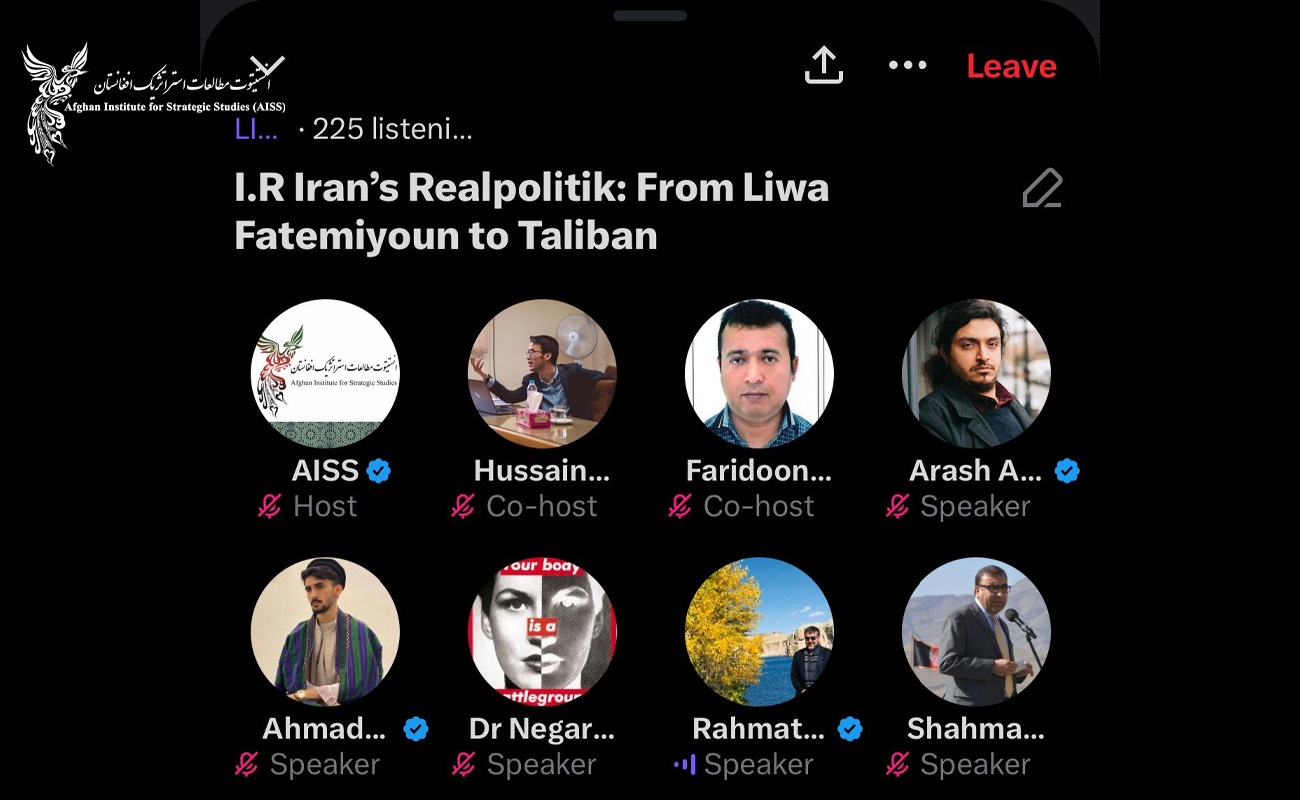I.R Iran’s Realpolitik: From Liwa Fatemiyoun to Taliban
On March 4, 2023 with the presence of experts from Afghanistan and Iran.
The program featured Dr. Negar Partow, Professor of MENA and Security at Massey University, New Zealand, Dr. Arash Azizi, Writer and Historian from New York University, Shah Mahmoud Miakhil, former Acting Defense Minster, Islamic Republic of Afghanistan, Rahmatullah Nabil, former DIR of National Directorate Security (NDS) and Hussain Ehsani, researcher , Afghan Institute of Strategic Studies.
Explaining the security policies of the Islamic Republic of Iran, Dr. Negar Partow provided an overview of the Iran's security institutions relations and Afghanistan's internal affairs. Pointing to the situation of human rights and women's rights under the regime of the I.R of Iran and Taliban, Dr. Partaw said that the concept of power and domination in the politics of the I.R of Iran and the Taliban revolves around realistic issues. She emphasized: "Both the Islamic Republic and the Taliban consider all issues based on the interference of foreign affairs, while they do not pay attention to very important internal issues such as poverty, human rights issues, and women's rights."
Dr. Arash Azizi, the author of the book "Commander in the Shadow", talked about the secret activities of security institutions in the Middle East and the region. He talked about some of the secret activities of the security institutions in the region and the intensification of these activities after the fall of the Islamic Republic of Afghanistan and the support these institutions providing to the Taliban.
Shah Mahmoud Miakhil talked about Iran's activities in financing and equipping groups such as the Taliban over the past 40 years and specifically in the past 20 years.
Mr. Miakhil said that these supports and relations are mostly temporary tactical goals. He added: "Currently, the relations between Iran and the Taliban are based on the principle that the enemy of my enemy is my friend."
Hussain Ehsani provided an analytical overview of the Iran's security organizations policies towards the issue of Afghanistan and said that those policies were implemented at three stages: infiltrating and influencing terrorist organizations, expanding and controlling terrorist organizations, and managing terrorism, which Iranian institutions consider it as intelligence.
Mr. Rahmatullah Nabil also stated that one of the important reasons for Iran's closeness with the Taliban is the search for an alternative backyard. According to him, now both sides; the Islamic Republic and the Taliban are in a precarious state, and this relationship can be a guarantee to help the other side in case of the collapse of one of the parties.
This program was held as a series of discussions of the Afghan Institute for Strategic Studies.

